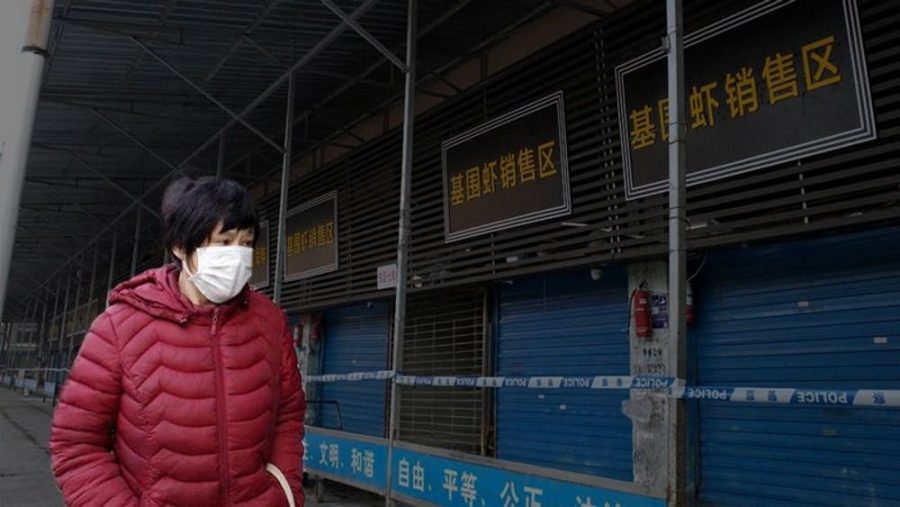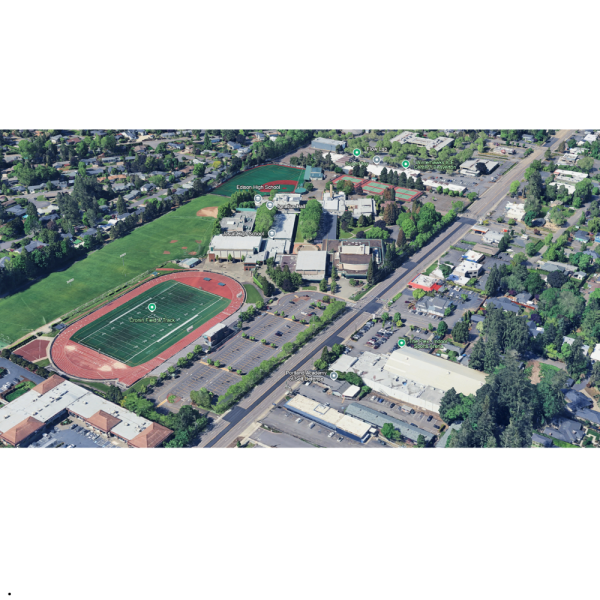Racial discrimination amid COVID-19 pandemic
When speaking on the government’s plan of action facing the beginnings of the Coronavirus epidemic, President Trump referred to the virus as the “Chinese virus,” striking pushback and outcry from many. With criticisms from Americans, news outlets, and even WHO officials, many argued the President’s words were damaging to Chinese American communities and only further encouraged xenophobia (CNBC).
When responding to a comment asking if his wording of the virus was offensive, President Trump responded, “It’s not racist at all” (CNBC). However, not long after did the President choose to stop using “Chinese virus” to refer to COVID-19.
The virus did indeed begin in China. However, does this give a pass for the possible discriminatory and xenophobic implications of calling COVID-19 the “Wuhan” and/or “Chinese” virus?
“I think some people are placing blame on Chinese people for the virus because it is an easy fix,” said senior Marissa Dea-Mattson.
“In a time like this, with a lot of turmoil, people want to place blame and attack others… Yes, it did orginate in China, but it affects all groups of people, regardless of sex, ethnicty, and age.”
The hardships that have occurred due to the outbreak, such as job insecurity, cancellations and more, leaves plenty of desire for blame to be placed.
Many Chinese and other Asian restaurants suffered business losses before COVID-19 shutdowns in the US, and internet memes saying things like “some idiot in China who ate bat soup…” are prime examples of the discriminatory attitude many have taken towards Chinese and other Asian people.
“The leader of our country and others are playing into the idea that [COVID-19] is the fault of one group of people,” Diversity Director Melissa Lowery said.
“That blame is not accurate or factual. It’s a feeling, and an opinion.”
“We usually don’t call other viruses by where they originated,” said sophomore Ché Lowery.
“It’s an excuse to be racist. Asian people are already victims of racial discrimination, and this puts even more of a target on their back.”
Blame and labeling the virus as “Chinese” creates an unneeded space for racial discrimination and xenophobia that only creates divides and tensions in a time where unity is needed the most. Being wary of the biases presented can help begin to squash discriminatory attitudes and lessen its effect on the Asians community in the future.
However, Asian Americans aren’t the only racial minority group being affected by COVID-19.
“Some communities which are disproportionately being affected by coronavirus are communities of color, especially Black Americans, because of health equity and lack of access to quality healthcare,” said senior Sudeeksha Yadav.
“And, US territories like Puerto Rico are experiencing colonialism-like symptoms of no aid from the US government and tourists continuing to vacation and spread disease to native residents.”
The presence of discrimination and the disproportionate effects of COVID-19 in communities of color calls for attention and remedies from American citizens. In a time of uncertainty and anguish, the dehumanization of certain groups due to race and other bias is uncalled for and needs to end. The only way to truly begin to lessen the emotional toils COVID-19 is taking on people around the world is to practice empathy and unitization with all of the people of the world, regardless of race.
“If someone blames China or other Asians for originating COVID-19, I would tell them that yes, it did start in China, but it has been affecting everyone from all over the world,” said Dea-Mattson.
“Because we are dealing with so many globalized cases, it is wrong to be targeting people based on their outward appearance. Placing stigma on people will not stop this illness but rather cause hatred and violence.”

Jayla Lowery is a current senior at Jesuit High School. She enjoys biking, reading, swimming, music, daydreaming, watching movies, and writing mediocre short stories and screenplays. Journalism has always interested her and she is excited to learn and write articles for the first time. She is really hoping to write pages focused on social issues and pop culture. She believes these topics deeply connect into Jesuit High School’s environment and culture and is interested in exploring the impacts of those subjects on Jesuit further. Jayla also hopes to write about music and movies and interview the many diverse and unique members of the Jesuit community. She is hoping to hear the perspectives and stories of people from all walks of life that make up the greater Jesuit High School community. She can’t wait to meet and talk to people she would usually never get the opportunity to! Jayla is hoping to studying screenwriting in college and hopes journalism will help her improve her writing skills and also help introduce her up to a new form of writing. She hopes she isn’t too nosy of a journalist and that this year is a very fun and exciting one and can hardly wait to get started!








